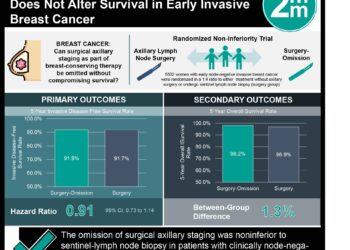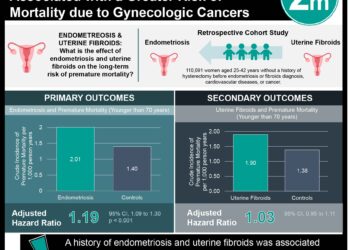Ghrelin-receptor agonists may be beneficial in cancer anorexia-cachexia syndrome
1. Patients with cancer anorexia-cachexia syndrome who received anamorelin gained significantly more lean muscle mass compared to the placebo group.
2. Severe adverse events related to the anamorelin treatment group were relatively rare and included fatigue, asthenia, atrial fibrillation, and dyspnea.
Evidence Rating Level: 2 (Good)
Study Rundown: Patients with advanced cancer commonly suffer from cachexia, defined as a progressive loss of skeletal muscle mass. Cachexia is a poor prognostic indicator and is associated with reduced treatment tolerance and response and decreased overall survival. Furthermore, the syndrome of cachexia-anorexia responds poorly to current appetite stimulant strategies. The ghrelin receptor (GRLNR) pathway is a novel therapeutic approach due to its putative anabolic activity that is both appetite-dependent and independent. The purpose of this trial is to analyze the utility and safety of anamorelin, an orally available, selective GRLNR agonist, for the treatment of cancer anorexia-cachexia. In a pooled analysis of two phase II trials, 82 patients with advanced cancer were randomized, in a double-blind fashion, to either 12 weeks of anamorelin or placebo. The primary endpoint was change in lean body mass over the treatment period. The authors demonstrated that patients in the anamorelin group had a significant increase in lean body mass compared to the placebo group. Patients receiving anamorelin also reported higher quality of life compared to those receiving placebo. Side effects associated with the treatment arm were rare, but included fatigue, asthenia, atrial fibrillation, and dyspnea. The results of this study support the use of anamorelin as a potential intervention in cancer anorexia-cachexia syndrome. However, the study is limited by its small sample size and its lack of stratification of important cofounding variables, such as use of concurrent cancer therapies. Additional larger randomized control trials are needed to assess the effectiveness of GRLNRs.
Click to read the study in Lancet Oncology
Relevant Reading: Cancer Cachexia and Fat-Muscle Physiology
In-Depth [randomized controlled trial]: This study is a pooled analysis of two phase II trials analyzing the effectiveness of anamorelin in cancer anorexia-cachexia syndrome. Eligible patients were 18 years or older diagnosed with advanced or incurable cancer with involuntary loss of 5% of body mass over the past 6 months. A combined 44 and 38 patients were randomized to receive 12 weeks of anamorelin or placebo, respectively. Patient age within the cohort ranged from 19 to 94 years with an average of 65.2 years. The most common primary malignancies were lung cancer, followed by colon, genitourinary, and breast. The primary endpoint was change in lean body mass as measured by dual-energy x-ray absorptiometry (DXA). At the end of the treatment period, patients randomized to anamorelin gained an average of 1.89 kg (95% CI: 0.84 to 2.95 kg) compared to those receiving placebo, who lost an average of 0.2 kg (95% CI: -1.23 to 0.83 kg). The difference of 2.09 kg was statistically significant (p=0.0006). The most common treatment-related adverse events in the anamorelin group were diarrhea (1%) and fatigue (1%) while asthenia (5%), atrial fibrillation (5%), and dyspnea (5%) were the most common treatment-unrelated adverse events. Interestingly, for both treatment and placebo arms, more than 60% of patients were male, which may have magnified the anabolic effect of anamorelin.
More from this author: Erlotinib does not demonstrate increased survival in ovarian epithelial carcinomas, Afatinib shows increased progression-free survival in non-small-cell lung cancer, New method may predict response to chemotherapy for lung cancer, Escalated-dose radiotherapy did not increase survival in prostate cancer, Stereotactic radiosurgery promising for patients with multiple brain metastases
Image: PD
©2014 2 Minute Medicine, Inc. All rights reserved. No works may be reproduced without expressed written consent from 2 Minute Medicine, Inc. No article should be construed as medical advice and is not intended as such by the authors, editors, staff or by 2 Minute Medicine, Inc.







